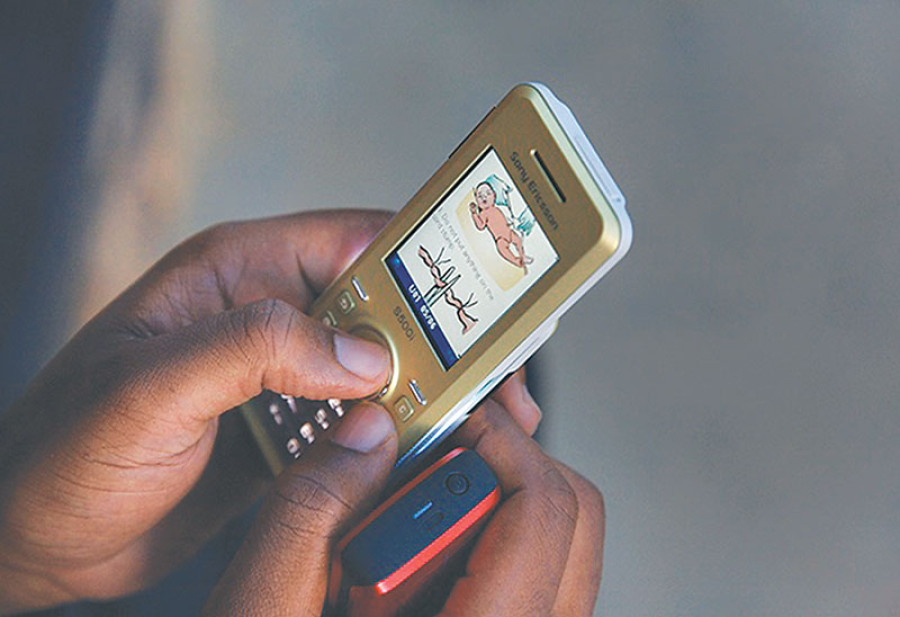Miscellaneous
Ministry of Health pilots mHealth, eHealth services
The Health Ministry has begun formal efforts to expand mHealth and eHealth services, a popular term explaining use of mobile phones and electronic tools in healthcare, by its health facilities.
The Health Ministry has begun formal efforts to expand mHealth and eHealth services, a popular term explaining use of mobile phones and electronic tools in healthcare, by its health facilities.
In the first phase, a mobile application and SMS service are being piloted in Baglung and Ilam districts to track the pregnant mothers for regular antenatal visits.
On Friday, the ministry signed a memorandum of understanding (MoU) with Medic Mobile, an international company being operated in 23 countries across the globe, to scale up the programme in various districts. The Medic specialises in developing and implementing mobile-based applications meant for the health sector, among other tasks.
The MoU between Medic and the ministry will leverage mHealth technologies to promote the access to health services, especially for the hard-to-reach communities and strengthen health systems, said ministry officials.
The MoU also states that Medic will provide technical support and advice to the ministry in effectively leveraging eHealth and mHealth solutions in Nepal.
The programme covers 59 VDCs in Baglung and around 24 VDCs in Ilam. It is also being implemented in some VDCs in Gorkha and Dhading.
“The mobile application and SMS service are used in the districts to remind the FCHVs have been effective to increase the antenatal visits,” said Dr Naresh Pratap KC, director of the Family Health Division under the Department of Health Services.
For example, in Baglung, SMS service is used to remind the Female Community Health Volunteers of the expecting mothers in their respective areas and their time of health facility visits. The details of pregnant mothers are then entered into an application and messages are forwarded periodically to the FCHVs, serving as a reminder. If any complicated cases are detected, routine SMS messages are again sent to the FCHVs who would then advise expectant mothers to seek medical attention.
Ministry officials said they talks are on with the Nepal Telecommunication Authority to waive the SMS charge sent to the FCHVs as a reminder for the health facility visits.
The discontinuity of the pregnant mothers on mandatory four visits to health facilities has been a problem facing the country.
The findings of Nepal Demographic and Health Survey-2016 show that only 69 percent of the women visited four times to the health facilities for check-ups.
However, there is a sharp rural-urban disparity in the visits. While 75 percent of the pregnant women in the urban areas are found to have consulted health professionals, only 62 percent of the women in rural areas visited health facilities. The antenatal care is really vital to monitor pregnancy and reduce the risks associated to it.
Ministry Spokesperson Bhogendra Dotel said the mHealth tools would also be used to track immunisation and disease surveillance soon.




 10.12°C Kathmandu
10.12°C Kathmandu









